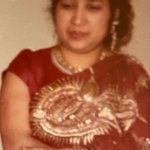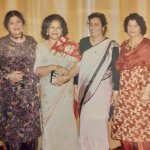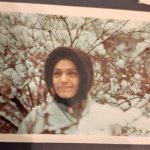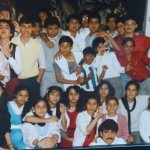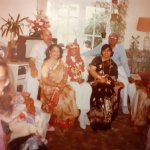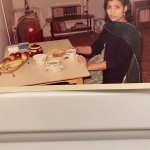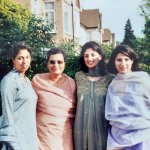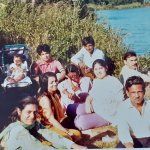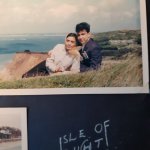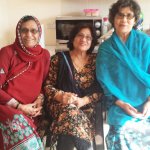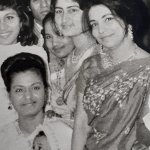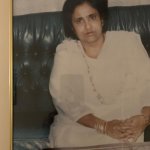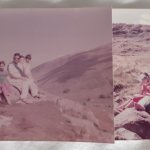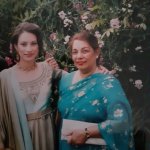Celebrating My Aunties: The Resilience and Strength of Muslim Women in Harrow
To mark International Women’s Day, Headstone Manor & Museum are delighted to share our co-curated exhibition which aims to shed light on stories of strength and resilience from four Muslim women in Harrow. This exhibition is co-curated by Saba, daughter of one of the women highlighted in our exhibition, who introduces her three Aunties and mum who have been at the heart of Saba’s life. The exhibition maps out the life journey of these women from marriage at a young age, to leaving their home country and starting a new life in Harrow. The exhibition reveals their thoughts on immigration and showcases what life was like for them living, working and raising their families in England.
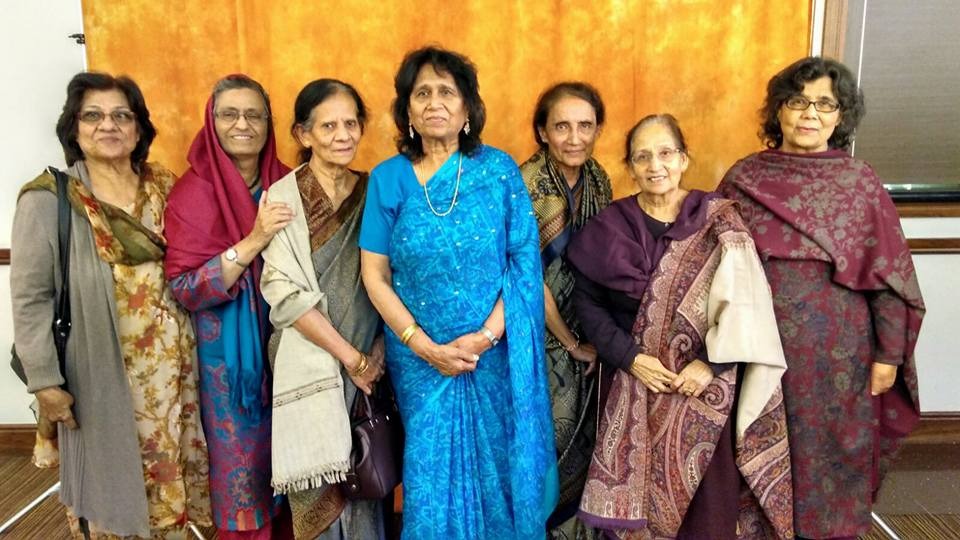
An Introduction From Saba Syed
Come and meet four of my Aunties…
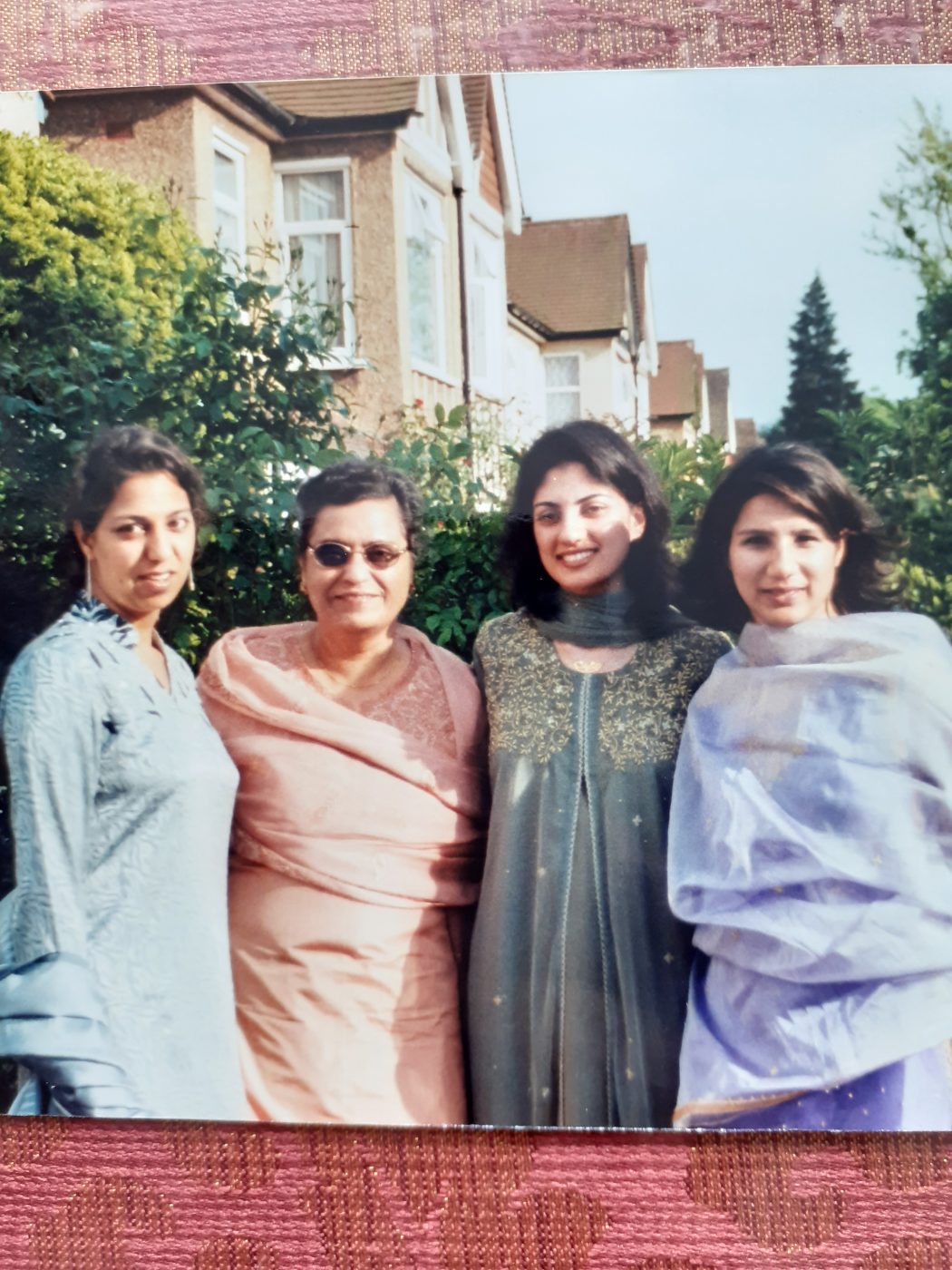
I am a Harrow girl, born and bred. I have been shaped by my parents, family, friendship groups, experiences in education and at work, and by my faith and dual heritage. Following marriage and motherhood, I began to recognise more and more that an important aspect of who I am, has also been influenced by a strong network of women around me, since childhood, women who I call ‘my aunties’.
My parents migrated to England in the 1960s, along with several other young, optimistic, educated men, looking for opportunities to make their way in the world. These men, from the subcontinent, got married to girls from home, who also made the journey to England, mostly on their own, leaving their parents’ homes for the first time, to meet their new husbands. For a number of these young ladies, it was the first time they had travelled on a plane. Although, for a lot of them, this wasn’t the first time they had crossed a country border. All the Aunties I know, were originally born in India, and then their families migrated to the newly formed country of Pakistan – but that’s a whole other story.
Photo left to right: Saba (daughter of Nusrat), Nusrat, Uzma (daughter of samina), Sheba (neighbour to Tahseen)
London in the swinging sixties was exciting and liberating for these newly wed couples. Living in one bed flats or shared accommodation, in areas around central London, away from the constraints of familial rules and conventions, the newcomers enjoyed their new adult life, establishing careers, improving their spoken English, hanging out together on the weekends, eating together and going for walks in the royal parks. Then, as children started coming along, a group of friends moved to Harrow. To this day, this group of friends are still in each other’s lives, having created the community that I grew up in. They are my aunties and uncles, and all their children are as much my family, as my biological siblings and cousins are.
I have grown up with this large extended family in Harrow, going on joint holidays and days trips, meeting on weekends for picnics and supplementary school, at celebrations; birthdays, Ramadhan, Eid, bereavements, marriages, births, job challenges and house moves. These remarkable aunties have witnessed our births, our graduations, and our entry into womanhood and have been there beside us, every step of the way. These strong, resilient women, who left their homes, came through hardships, formed their own community and raised their created-extended family with warmth, kindness and respect. They continuously show me how to be a woman. I carry with me always their advice, their recipes, their positivity, their strength of character and most of all, their love.
Meet My Four Aunties
Najma Aunty
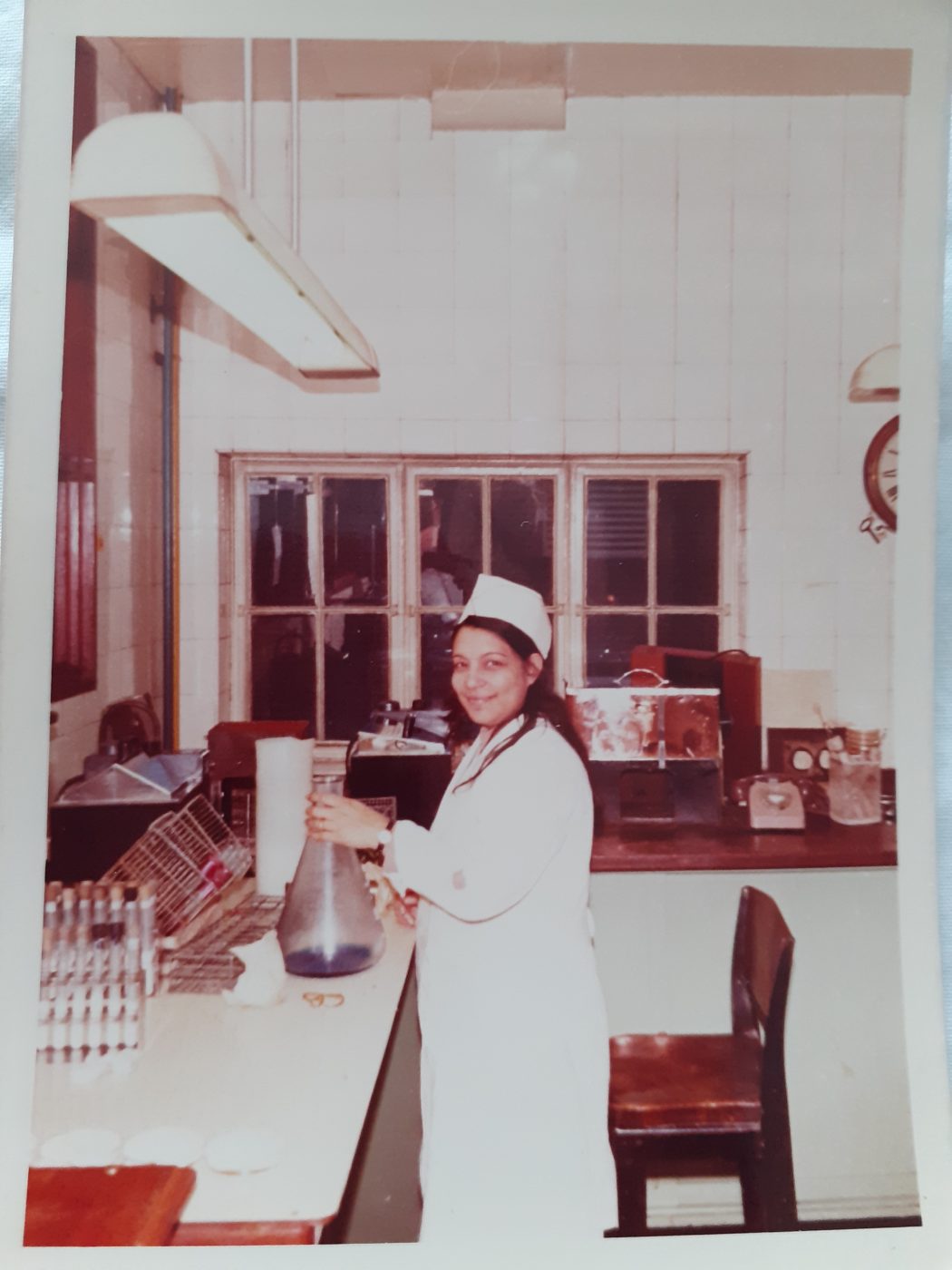
Early Life
My name is Najma Mirza, I was born in Kanpur, India in March 1947. We migrated to Karachi in Pakistan soon after. My marriage was arranged. My husband-to-be was in London at the time, his parents used to come to my parents’ house and they proposed on behalf of him. I was doing my degree exams at the time, they said ‘oh she should get married, soon after the exam’.
I came to England in 1967. I was very happy because I had seen a few English movies, the houses and the streets, and I thought ‘oh my god, beautiful houses, I’d be living in one of those houses’, I was all excited. But he took me to a house in East London, one of his friends was there and I couldn’t believe I’m in London, it was really bad. I was scared, I didn’t know anybody. Then after a few months, we found some friends and I was okay but I was missing my parents significantly. He would go to work and I was at home all day alone in a room in a shared house and every evening I would cry and say ‘I want to go back, I don’t want to stay here.’ A year later, after I had my first baby, I went to Pakistan and I left my daughter there. I came back and I started working. My husband said ‘we have to work, you know otherwise we’ll never be able to go back to Pakistan’. Our plan was to go back in three years’ time, so I said I didn’t mind going in three years. And so we worked.
Work and Social Life
I did a degree in science back at home so I secured a job with the United Dairy in their Harlseden laboratory and worked there for 5 years. I was quite happy there, they were quite good, they helped me a lot. That was my first job; I never worked before in Pakistan. The hardest thing was my daughter being in Pakistan. My mother used to come here with the baby every year and I would go there. We managed to see each other every six months. It was so bad when she used to go back, I used to cry for months, I missed her so much.
I called her back when she was about 5 years old as I wanted her to start school in the UK. After five and a half years, I had another girl, and I said “I’m going to look after her, I’m not going to work, I’m going to spend full time with her”. So, I left my job and stayed at home for 5 years. By then we were living in our own house in Harrow.
We had lots of friends and they were always there for me. We used to go out, go to picnics and go to the local cinemas. We went to each other’s houses on the weekends and spent the whole weekend together. The social life was quite good. Life was also so hard. We didn’t have the money, we didn’t have a house, we were renting a flat so we said we’d buy a house and then we’ll call our children, they’ll have a good life as well you know.
Food and Celebration
I used to make our own food, our Pakistani food. We used to go to the halal meat shop every weekend and get vegetables and fruits, everything was there. After about 3-4 years, people started to migrate from Uganda, and I could see many of our people here. Before there were very few people like me. Whenever I used to see them when I was shopping, and I would say ‘oh look there’s a Pakistani there, let’s talk to them, let’s make friends with them.’
On Eid we used to take a day off, go to the mosque with the children, meet friends. It was fun!. We used to invite people over. We get together and have a nice dinner, celebrating the same way as we did in Pakistan. The children would have new clothes, my mother would send new clothes. I did sewing also, making dresses for the children.
I’m very proud of my daughters now. Ambreen has two daughters, and Serena is a doctor living in Pinner. Samreen did a law degree, got married and lives in America. She’s a housewife, looking after her three children. She’s happy with the life she has. I’m happy here, in Northwood, my children are happy and my grandchildren are happy (laughs).
Nusrat Aunty
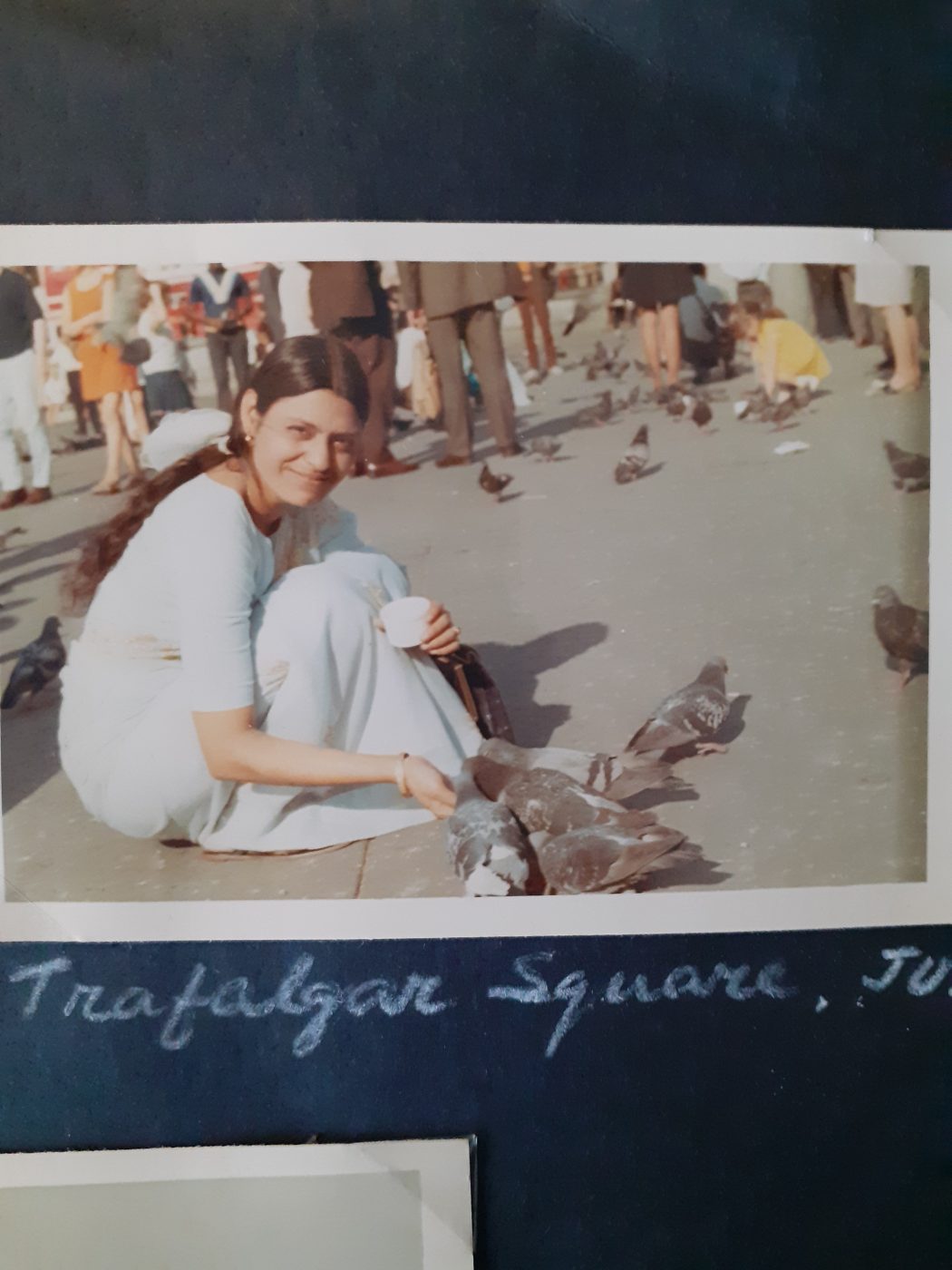
Early Life
My name is Nusrat Syed and I was born in Kanpur, India in 1943. I grew up in a big household in Kanpur with my four sisters and three brothers, and attended Aligarh University. My father was a successful businessman in the footwear industry.
I came to London in November 1967, after I got married to join my husband as a new bride. It was my first flight and I really enjoyed it. My husband used to work for an airline, so he came inside the airport to meet me which was nice. My first impression of London wasn’t really glamourous for us. Still, we were in a one bedroom flat in Hackney and we used to go every evening for a walk to Victoria Park. The underground was new and there was no fear going out in the evening. I would come home about 11pm after attending some classes and there was nothing to be afraid of. I attended a drama class where the old ladies used to enjoy seeing me there because I was young in a class of old people (laughs). I also went to English pronunciation class because it was a bit difficult to understand English people at first but I got used to it!
Work and Social Life
I worked in a children’s home for four years and when we moved to our house in West Harrow I started a clerical job at Eastern Electricity. It wasn’t for long though because I had my eldest daughter and I wasn’t very well. I had another girl after eighteen months later. When I thought about working after two years, I was pregnant again with my son, so I didn’t work outside, just at home. That time my friends used to make special made curtains, so I did it too. I would leave children at nursery, come back, do some work, then cook and look after the children when they came back home. It wasn’t easy but I did whatever I could for my three kids, because you know there is no help. My husband would be at work all day and in the evening he would say ‘do you want to go somewhere?’ or he worked in the garden.
We tried our best to be close to the children and keep tigers eyes on them, feed them well, and teach them, going on holidays with friends. My husband joined some friends to form a society so on weekends we had social events and Arabic and Urdu classes on Saturdays so our children could learn our language and culture and the religion of Islam. There were different things like Mishayra (poetry evening), Meena bazaar and Eid parties.
Celebration and Family Life
I prepared for Ramadhan, by cooking a little bit extra and getting new chamkdaar (bright) clothes ready for Eid. We travelled a lot and we had lots of family and friends staying with us from all over with us. My husband’s nephew came from Pakistan to study and he lived with us in the box room for 10 years until he got married. A few young men got married from our house so it was lively for my children.
I think we are the lucky ones, we have had a nice time. The whole world is for us, you make it what you want to. My three children and seven grandchildren are all sensible and good so I have no regrets that I came here or that I should or shouldn’t be here.
Samina Aunty
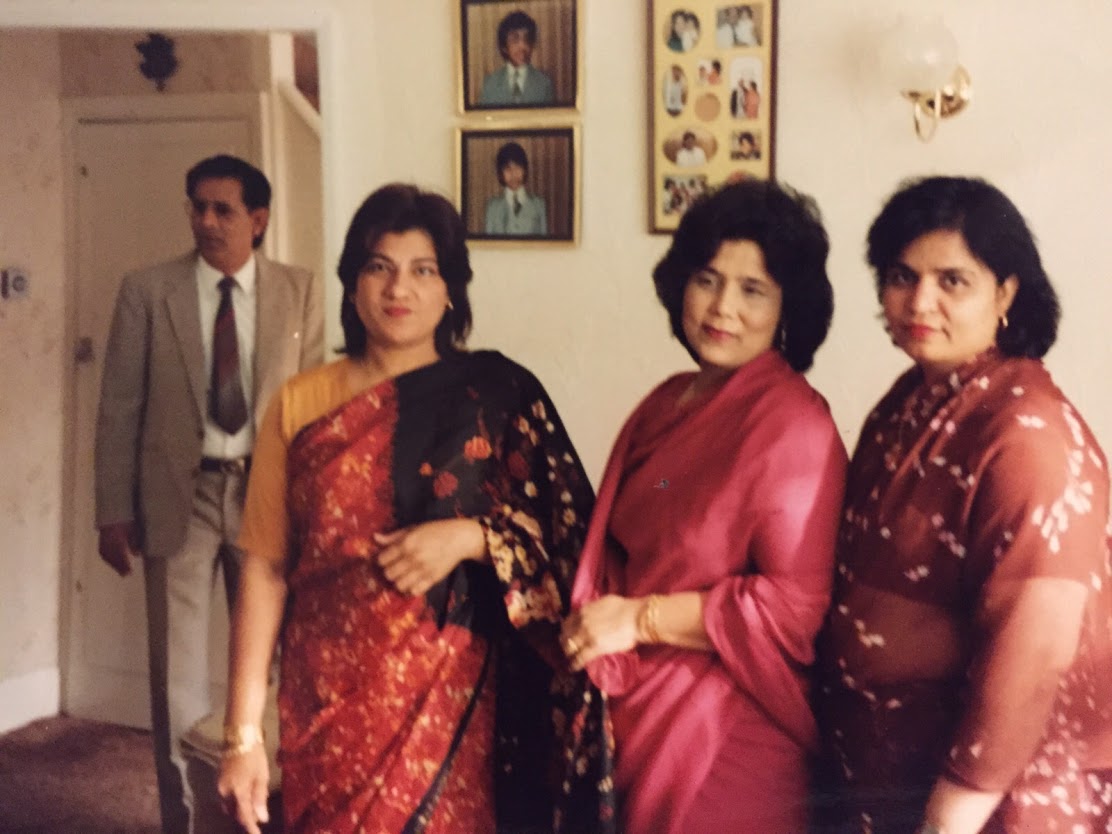
Early Life
My name is Samina Kadar, I was born in December 1947, in Meerut, India. We moved to Pakistan in 1948. I got married in Dec 1966 in Karachi, it was arranged and we never got to see each other until the first night. We came to London together in mid-January 1967, leaving behind my mum, dad, brothers and everyone I knew in Pakistan. It was my first long haul flight, although I had been to India a few times by plane to visit my grandfather. When I came here my life was completely different. It was very, very cold because it was January!
My husband was already living in a room in a flat in Kilburn when I came here and his friend also used to live in the same building. I came from Pakistan where there were very big houses and it felt like living in a prison cell! It was a bad time for me. We lived like that for eight months until we brought our own home and moved to Harrow. The change felt good. The house we moved into seemed really big even though it was only a two bedroom house as we came from living in one room.
Moving to Harrow
After I gave birth to my first child, a boy, I started working part time in a small office doing filing and at that time my husband was studying chartered accountancy, so it was very hard. When my first daughter was born, at four weeks old I had to send her to Pakistan. I couldn’t work with two children. Our parents had also said they would look after her. She lived there for almost two and half years until we bought a house on Canning Road in Wealdstone and then she came back. I made that decision with strength and courage, as our situation financially was difficult, accommodation was difficult. One child was with the babysitter and the second we had to sent back home.
When we brought the house I started making curtains as a job. It was really good because I was able to look after my own children, had time to eat, I used to drop and pick up my husband and children, so it was an advantage for me to be able to work from home.
Making Friends
In the beginning, we came here thinking we will be going back to Pakistan. My husband was studying and he said once he finished we would go back. However, we slowly, slowly got used to living here. We did a lot of hard work. We rented out three single rooms in our house, this made our lives easier. We redecorated the house as we went along as the houses were really old. There was a lot of hardship to face and a lot of hard work was put in.
After that, whenever we saw any South Asians going past with their prams, we used to stop and ask them where they are from, what their name is, that’s the way we began our friendships and then the children would become friends – just like that (laughs). On Eid when all the children were very young, we all used to visit everyone’s houses to celebrate. All of us friends made a society where 20 to 25 families were able to get together and celebrate events and our children would play together. In those times teaching our religion and in our language was difficult so our society started a Saturday school.
Looking Back
Now my retired life is going really well and we all take care of each other by visiting each other, helping each other out – this is my life. Now my son is a computer engineer in America, my daughter is a dental hygienist in Canada and one daughter is a teacher here in Harrow. I am happy that at least one child is living here. Our children are really good children, just like our friends’ children, they are all very good, educated and successful in life.
Tahseen Aunty
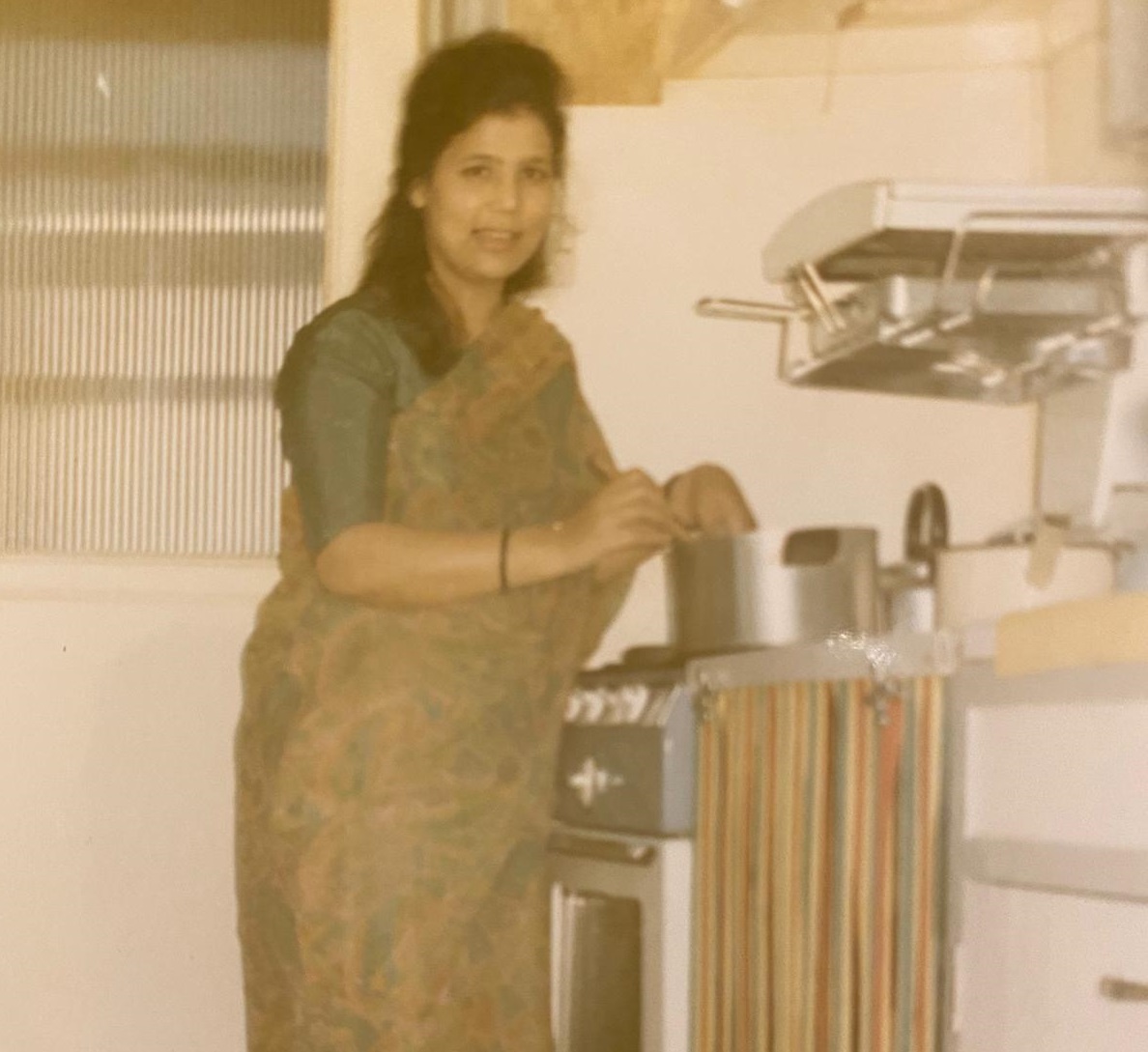
Early Life
My name is Tahseen Waseem and I was born in Kanpur, India, in February 1945. I was too young to remember but we all went to Karachi in a ship so I grew up there. In 1962 I had my nikah (wedding registration) before my husband was coming to England. I lived with my family until 1964 when I went to London to join my husband. It was my first time on a plane and I didn’t know what to take, and at the airport I met him as his wife for the first time. When I got here, I loved it. It was August and it was so green and flowery and the weather coming from Pakistan with the heat and the dust, I loved England straight away!
On that plane ride, I wore a sari for the first time. My husband said don’t wear a shalwar kameez, so from then on, for the next 16 or 18 years, I wore a sari all the time; on outings, working, shopping, cooking, cleaning. Even when the snow fell, the saris got ruined (laughs)!
Moving to Harrow
We first lived in a studio flat in South Kensington and I was crying every morning because I didn’t know anyone, I had no one to talk to and I didn’t know the area very well. So I think after two weeks I went looking for a job and John Lewis had a work scheme (apprenticeship) and they teach you upholstery and stuff, so they gave me a job. They told me how to sew curtains, and do upholstery and my English wasn’t all that good but there were some ladies and they really helped me. It was really good, they taught me everything and they were just lovely people, they guided me into everything in everyday life. I stayed there for 3 years. I was then expecting my first child, so I left. We wanted to buy a house. Someone told us to look around in Harrow. It was a nice place so me and my husband came here and we bought a house in 1967 in West Harrow, Vaughn Road, it was only a two-bedroom.
I used to buy vegetables and meat on Fridays coming home. Once I remember someone told me to get harra dhaniya (fresh coriander) from somewhere and they said “oh it’s not that far”, and I remember walking about a mile just to get harra dhaniya (laughs)…now you can buy everything here.
Making Friends
When I came first if I saw anyone (asian woman) going on the footpath or at the station I would make sure I would go and talk to her, we pushed ourselves to make friends. It was hard to find somebody from your own culture or from your own country.
While we were in South Kensington my husband had a couple of friends when he came and we made two more friends so we were like a team. I used to cook something and they all came around in the evenings, we played Carrom (carrom board) [and] we played cards. One of them went to get married and then he came back with his wife (Samina Kardar). She was like my sister-in-law’s friend and I had already met her when I was in Pakistan. They lived near us in South Kensington and we became very good friends. Then we met another friend and he wasn’t married at the time but then he got married later and his wife came from India (Nusrat Syed) so that was another couple, so we really saw each other whenever we can, we made plans, we go on outings, we used to walk to Hyde Park…it was a really good group of friends.
The friendship groups only grew, and they all came to Harrow. Then we had children and because we were so much together, all the children became like one team as well and there’s such a bond between all of them. We had outings…to different parks, different areas, we will take food and everything and the children would play, it was like one big happy family. That was a really great time. They all became now like my own family. I had three children, the first one was stillborn and then I had two boys, Amir and Sohail.
Family Life
Later we bought a bigger house with a garden in Harrow. My husband’s friend bought the house next door and another friend bought the land on the other side and built a house. So there were three houses in a row in West Harrow with three families who we had known since the 60s. We opened one of the fences in the middle so it was all one big garden, and we had a joint door at the back! Friends would all come and all the children would be in one house and all the grown-ups in the other house. We had a really fun time!
The community organisation in Harrow was a great advantage to my children. There was a school on Saturdays and the children met so many other children. I would help whenever I could…we would get together and organise events.
In the beginning we used to eat in a park on Eid…we used to go to Regent’s Park mosque. It was a really lovely mosque. We did it for quite a few years and then we were lucky to have a mosque in Harrow and now some people go there.
Looking Back
My husband wasn’t doing well and within 11 months he passed away. That was a very hard time. I used to go in the morning to the hospital and then come back about 10. I was staying with one great friend of mine and she had the food ready for me and gave me support. These are all the same friends I’ve had since the 60s. I didn’t know where to go, what to do, because he took care of everything. I never even signed a cheque because he dealt with everything. But again, all the friends, they were just like my sisters and my brother-in-laws, they all gave me so much help and support and I survived. I didn’t need to go back to America because for me life is so easy here. I go to see my sons in America and I really miss them and I miss my grandchildren but still I couldn’t make the move again. I said I’ve lost this place once, I’m not going to lose it again.
This is the best country in the world and I just love it, the people and everything. I’m still in Harrow. I love all my friends, they are a phone call away. I don’t feel alone. I have been blessed. The people I have around me, you just don’t find them easily.
A Final Note
A few Aunties have passed away but they remain in our thoughts and prayers. Nayyar Aunty, Naz Aunty, and Razia Aunty preparing us for performances at cultural events, Nafisa Aunty’s food on Eid, Noorjahan Aunty teaching us Urdu at Saturday school. My memories are of these ladies and my other aunties gathering together to cook for events – singing songs, laughing and sharing their joy.
Acknowledgments
With gratitude to Najma, Nusrat, Samina and Tahseen Aunty who shared their stories with Saba Syed.
Thanks to Saba Syed, Sadiya Ahmed, Amir Waseem, Farah Kardar, Sheba Coleman and Sanjna Shah (Collections Volunteer).
Some photos from Islamic & Cultural Society of Harrow (ICS) Archives.
Interviews originally conducted for Everydaymuslims.org
All images copyrighted to personal archives of Saba Syed. Not for use. To use these images please email collections@headstonemanor.org
Tell us what you think?
Do you have a story to share with us for a future digital exhibition? Please email collections@headstonemanor.org

